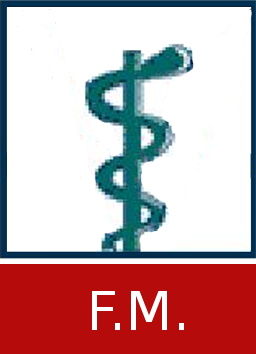Mémoire, y compris stage professionnalisant[BR]- Séminaires méthodologiques intégratifs[BR]- Mémoire :"Identification des freins et des leviers à l'implémentation d'une collation nocturne au sein d'une maison de repos et de soins"
Flammang, Camille 
Promotor(s) : Lardennois, Miguel
Date of defense : 23-Jun-2022 • Permalink : http://hdl.handle.net/2268.2/14077
Details
| Title : | Mémoire, y compris stage professionnalisant[BR]- Séminaires méthodologiques intégratifs[BR]- Mémoire :"Identification des freins et des leviers à l'implémentation d'une collation nocturne au sein d'une maison de repos et de soins" |
| Author : | Flammang, Camille 
|
| Date of defense : | 23-Jun-2022 |
| Advisor(s) : | Lardennois, Miguel |
| Committee's member(s) : | GILLAIN, Sophie 
VERBRUGGE, Anne-Marie 
|
| Language : | French |
| Number of pages : | 45 |
| Keywords : | [fr] Collation nocturne [fr] Freins et leviers [fr] Jeûne nocturne [fr] Dénutrition [fr] Maison de repos et de soins [en] Night snack [en] Brakes and levers [en] Night-time fasting [en] Malnutrition [en] Nursing home |
| Discipline(s) : | Human health sciences > Public health, health care sciences & services |
| Target public : | Researchers Professionals of domain Student |
| Institution(s) : | Université de Liège, Liège, Belgique |
| Degree: | Master en sciences de la santé publique, à finalité spécialisée en promotion de la santé |
| Faculty: | Master thesis of the Faculté de Médecine |
Abstract
[fr] Introduction : Il existe un consensus entre plusieurs instances qui recommandent d’instaurer une collation nocturne au sein de maisons de repos et de soins afin de limiter le jeûne nocturne chez la personne âgée. Malgré cela, très peu d’études scientifiques explorent l’aspect organisationnel de la mise en place de cette recommandation.
Objectif de l’étude : L’étude a pour but principal d’identifier comment une MR/MRS peut adapter son organisation pour apporter à manger en soirée et limiter le jeûne nocturne.
Méthodologie : L’étude est qualitative avec une approche phénoménologique dont le raisonnement est inductif. L’outil de collecte de données est l’entretien semi-dirigé individuel fait auprès de 10 membres du personnel impliqués dans le projet de la collation nocturne au sein de leur résidence. Une analyse thématique a été réalisée par après.
Résultats : Trente et un thèmes ont émergé du discours du personnel soignant de nuit et de leur hiérarchie et ceux-ci ont été classifiés sous quatre grands axes relatifs aux objectifs de l’étude. Les entretiens ont pu mettre en évidence certains freins et leviers au niveau institutionnel et organisationnel quant à l’instauration de la collation nocturne au sein de leur institution. Certains sont relatifs au personnel soignant tandis que d’autres se réfèrent aux résidents. Quelques pistes d’amélioration ont été suggérées et certains impacts sur la qualité de vie du résident ont été identifiés par le personnel soignant.
Conclusion : Cette étude a montré certains pièges institutionnels dans lesquels il ne faudrait pas tomber tels que le manque de communication, la surcharge de travail ou le manque d’engagement des acteurs de terrain. Afin de les limiter, il semblerait intéressant d’adapter le management, d’inclure toute la résidence dans le projet ainsi que d’envisager de prévoir un horaire supplémentaire le soir afin de soulager la charge de travail du personnel de nuit. Par ailleurs, s’appuyer sur les impacts sur la qualité de vie du résident et sur la réduction de la charge de travail à long terme pourrait investir davantage le personnel soignant dans le projet. Il convient néanmoins de se servir des leviers identifiés tels que l’organisation d’une formation de sensibilisation, l’élaboration de listes de collations diversifiées et adaptées à chaque résident ciblés et l’accessibilité à la nourriture.
[en] Introduction : There is a consensus among several authorities recommending the introduction of a night snack in nursing homes in order to limit night-time fasting in the elderly. Despite this, very few scientific studies explore the organizational aspect of implementing this recommendation.
Objectives : The main purpose of the study is to identify how a nursing home can adapt its organization to bring food in the evening and limit night-time fasting.
Methods : The study is qualitative with a phenomenological approach whose reasoning is inductive. The data collection tool was a semi-structured individual interview with 10 staff members involved in the nightly snack project in their residence. A thematic analysis was conducted afterwards.
Results : Thirty-one themes emerged from the discourse of the night care staff and their hierarchy, and these were classified under four main headings related to the objectives of the study. The interviews highlighted certain institutional and organizational obstacles and levers to the introduction of night snack in their institution. Some of these are related to the nursing staff, while others are related to the residents. A few avenues for improvement were suggested and certain impacts on the resident's quality of life were identified by the nursing staff.
Conclusions : This study has shown certain institutional traps that should not be fallen into, such as lack of communication, overwork or lack of commitment from the field actors. In order to limit these pitfalls, it would seem worthwhile to adapt management, to include the entire residence in the project, and to consider providing for additional evening hours in order to relieve the workload of night staff. Furthermore, relying on the impacts on the resident's quality of life and on the reduction of workload in the long term could make the nursing staff more involved in the project. Nevertheless, the levers identified should be used, such as organizing awareness formation, developing diversified snack lists adapted to each targeted resident, and making food accessible.
File(s)
Document(s)

 Mémoire_CamilleFlammang_s186026.pdf
Mémoire_CamilleFlammang_s186026.pdf
Description: -
Size: 552.49 kB
Format: Adobe PDF
Annexe(s)

 Annexes_CamilleFlammang_s186026.pdf
Annexes_CamilleFlammang_s186026.pdf
Description: -
Size: 1.27 MB
Format: Adobe PDF
Cite this master thesis
The University of Liège does not guarantee the scientific quality of these students' works or the accuracy of all the information they contain.


 Master Thesis Online
Master Thesis Online



